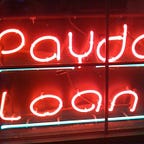6 Key Players in the Payday Debate
Who’s Who in the World of Payday Lending
1. Benjamin Lawsky
Lawsky, head of the New York Department of Financial Services, is known as one of the top watchdogs in the payday lending industry. He sent shock waves through the industry last summer when he wrote a letter to 117 banks, demanding that they stop processing online payday loans in New York. (Payday lending is illegal in New York.) Just last week, Lawsky also announced that he was teaming up with Visa and MasterCard to cut off payday lenders who access New York customers’ accounts by getting their debit card information.
2. Western Sky
Despised by regulators and industry players alike, Western Sky was sued by attorneys general across the country and eventually shut down last fall. Run by an individual member of the Cheyenne River Sioux Tribe, not the tribe itself, Western Sky was not immune from state lawsuits. To qualify for tribal immunity, a payday lending business must be owned and operated by the tribe, not by an individual member (see more about tribal immunity here). Robert Rosette, an Arizona-based lawyer and a member of the Chippewa-Cree tribe, called the Western Sky model “rent-a-tribe.” “That’s wrong, that needs to be shut down,” he said. Rosette represents several tribes with payday lending businesses, which he says are owned by the tribes, not individuals.
3. Scott Tucker
A race car driver and payday lender from the suburbs of Kansas City, Scott Tucker has been named in numerous state lawsuits, one federal lawsuit, and was the subject of an investigation by the Center for Public Integrity and CBS News in 2011. Since his business are aligned with Native American tribes, Tucker has so far been successful in state courts. (Read about how tribal immunity enables payday lenders to circumvent state laws here .) But this spring, a U.S. District Court judge ruled that his businesses, though owned by Miami and Santee Sioux Tribes, are still subject to federal laws about lending and debt collection practices. This week, Reuters reported that one of the payday businesses affiliated with Tucker was subpoenaed as part of a criminal probe by the U.S. attorney in Manhattan.
4. Jer Ayles-Ayler
Ayles-Ayler is a Newport Beach, CA-based consultant, well known throughout the payday industry for his “Payday Loan Bible” ($367.95) and his colorful, rambling e-newsletter, touting “insider strategies.” The latest one urged employers to get into the workplace loan business. “‘Workplace Cash Advances’ trump all other payday loan/small dollar loan solutions for employees. Opportunities for entrepreneurs are here — *NOW,” he wrote. Ayles-Ayler offers advice for prospective payday lenders for $5/minute.
5. Four Oaks Bank
Four Oaks Bank, in North Carolina, was the first major target of Operation Choke Point, the Justice Department’s crackdown on illegal online payday lending. The complaint alleged that Four Oaks Bank allowed a third-party to process $2.4 billion in illegal transactions, mostly for online payday lenders. In return, the bank got $850,000, according to the complaint. The bank settled with the DOJ for $1.2 million in late April, but didn’t admit wrongdoing.
6. Richard Cordray
All eyes in the payday industry are on Cordray, the director of the Consumer Financial Protection Bureau. Since the bureau formed in 2011, it has published two studies that show how payday lending can trap consumers in a cycle of debt. It has also started to collect complaints about payday lenders, sued a business associated with Western Sky (see above), and issued civil investigative demands to several tribal payday lenders. In March, Cordray said in a speech that the bureau was in the “late stages” of formulating new rules for payday lending.
